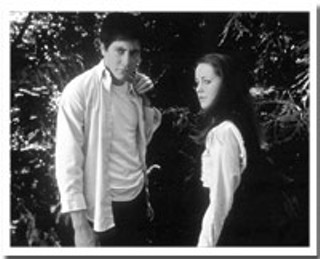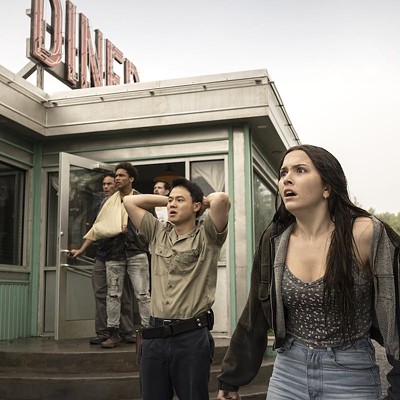A strange thing happened when i was watching the new DVD of Francis Coppola’s The Outsiders. I waited for the monologue that gets me every time. Johnny is stargazing with his friend Ponyboy and says, “It seems like there’s gotta be someplace without Greasers, Socs. There must be some place with just plain ordinary people.” The lines are still there, but now Elvis Presley’s “Blue Moon” is playing over them, draining all feeling. This is the threat of Directors’ Cuts—a promising idea gone in the wrong direction.
Directors’ cuts and their less prestigious siblings, Extended Versions, are nothing new. It’s their recent availability that’s become a DVD marketing ploy. Directors’ cuts really took off in 1992 and 1993 with special video versions of JFK and The Lawnmower Man, and the theatrical release of Blade Runner: The Director’s Cut.
The concept is appealing to any serious movie fan. Films can be seen as their directors hoped they would be, untarnished by studio heads and the obligation of a certain rating. These production-line compromises affect the majority of films that play theatrically. Unless they’re Steven Spielberg, it’s uncommon for studio filmmakers to have final cut of their movies for initial release.
But there’s also a tendency for subsequently released versions to be after-the-fact revisions—most famously illustrated in 1997 with the box office success of George Lucas’s raping and pillaging of his original Star Wars trilogy. The newly created visual effects and rethought narratives of the recent director’s cuts of Donnie Darko and The Warriors bespeak a revisionism that disregards movies as historical properties. While neither film’s theatrical cut DVD is out of circulation, the more lavish director’s cut DVDs are attaining prominence. In both cases, great movies have been altered into passable ones. Donnie Darko director Richard Kelly and The Warriors director Walter Hill realized the cult popularity of their movies and refurbished them—to mainstream indifference. The new scenes in Darko and its rearranged soundtrack drain the film’s mystery and divinity. The Warriors adds Creepshow-style comic panels between scenes, overemphasizing its chosen aesthetic and insulting viewers who took the movie’s themes seriously, reminding them it’s just a story. Worse, the drawing style Hill’s chosen resembles the glossy computer-enhanced rotoscoping of Waking Life—not at all congruent with 1979.
Neither director’s cut approaches the disgrace of The Outsiders. Replacing most of his father’s epic score with grating period rock songs (something Coppola admits he’d never have done were his dad still alive), Coppola crushes the movie’s teenage Gone With the Wind texture—the very thing that made it interesting. But since it’s loaded with extras, has a better transfer, and boasts an “All New Soundtrack Score,” it’s the version with the most invested in it.
That’s how recuts reshape our historical understanding of these movies. The theatrical cut of Coppola’s Godfather III has never been available on any video format. Will future generations have the option to learn that the initially released Not Another Teen Movie is marginally funnier and better paced than its Unrated Director’s Cut?
That isn’t to say a director’s cut can’t be a better movie. I prefer the video cuts of Manhunter and Any Given Sunday to their theatrical cuts. Like James Cameron’s extended video versions of The Abyss, Aliens and T2, the director’s cut of Oliver Stone’s Alexander is, while not a clearly superior version, a worthy addendum. Reordering the chronology of scenes and excising and adding other footage, it’s Stone’s belated effort to make amends for the worst reviews of his career. For those of us who liked the movie in theatres, that version is available as a separate purchase. In Alexander’s case, however, it’s the DVD with “Newly Inspired” displayed on the front case that’s the biggest consumer draw.
Filmmakers’ efforts to get their unabridged visions out (the real, held back from the start, director’s cuts) must be distinguished from the commercial temptation of revamping movies. Nobody complained that 40-Year-Old Virgin was 17 minutes too short in theatres. And if the mood strikes them, I don’t want to see how revision theorists can make The Wizard of Oz look with 21st century CGI capabilities.
Asked by Universal in 2002 if he would rescore Scarface with a contemporary rap soundtrack, director Brian De Palma told them not a chance in hell. He’d fought so hard to get his original version released in 1983 that he wasn’t going to cater to pressures now.
And that’s one movie preserved.














